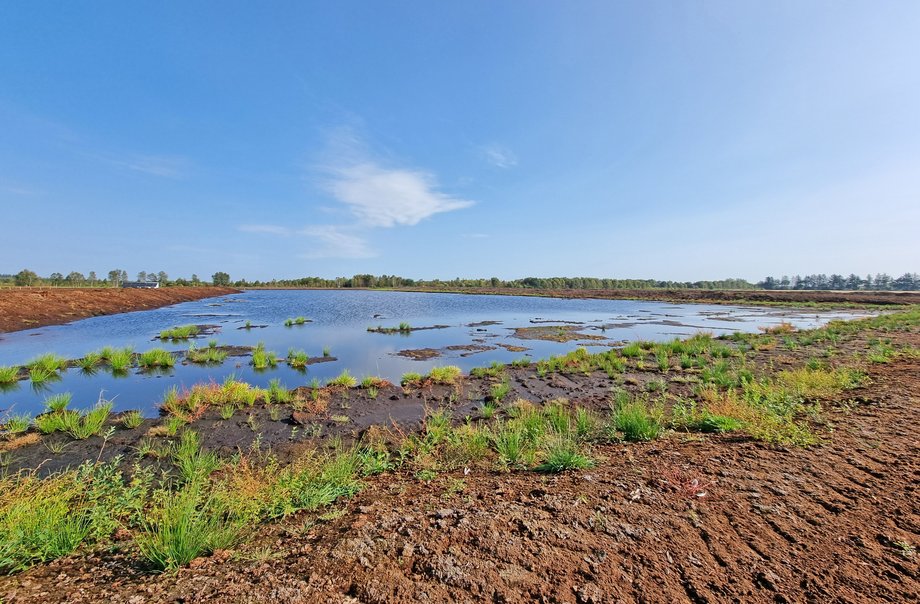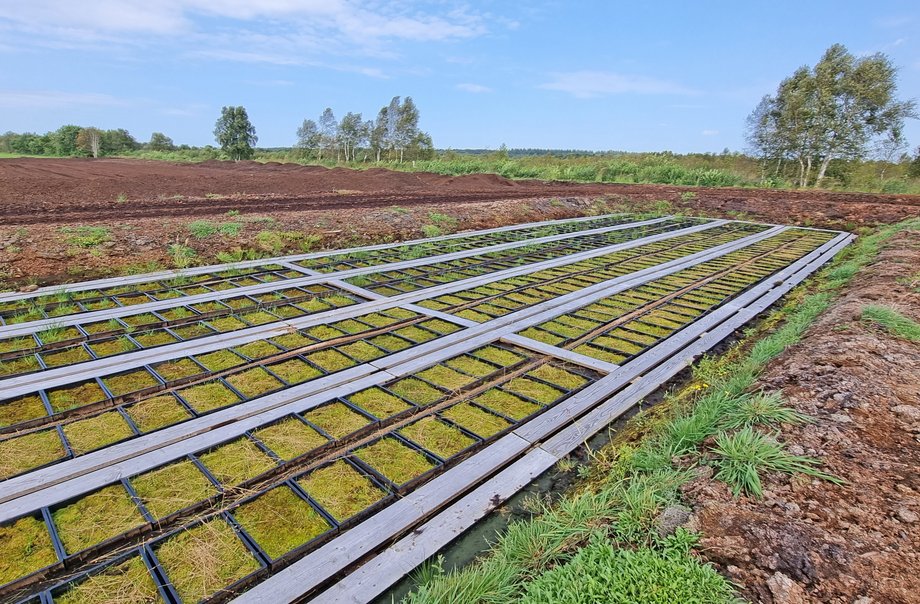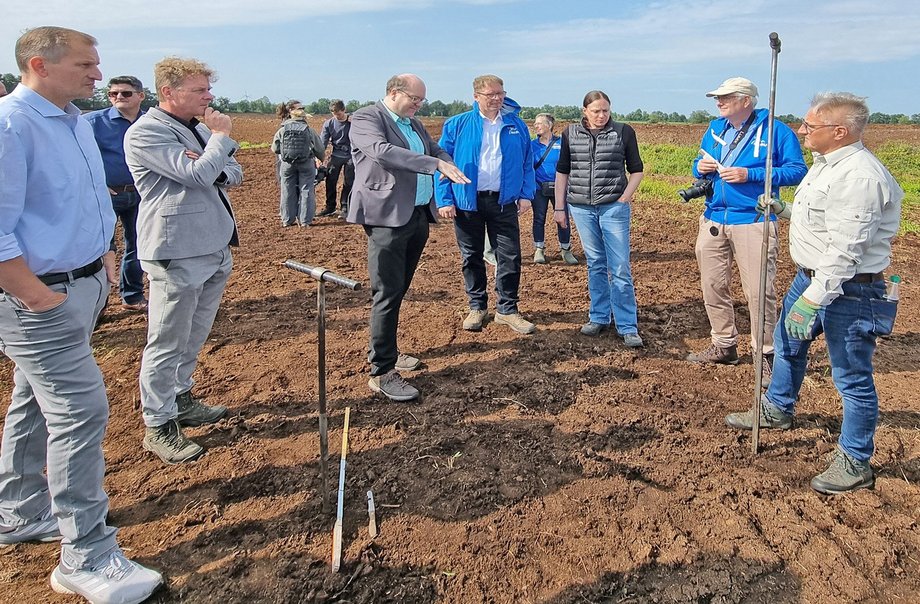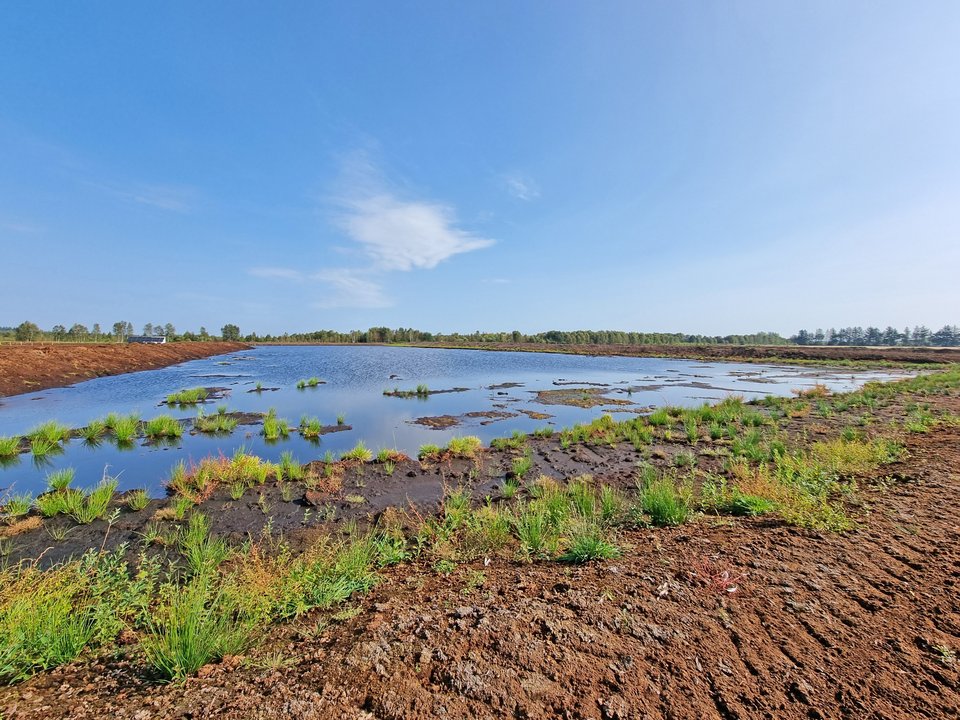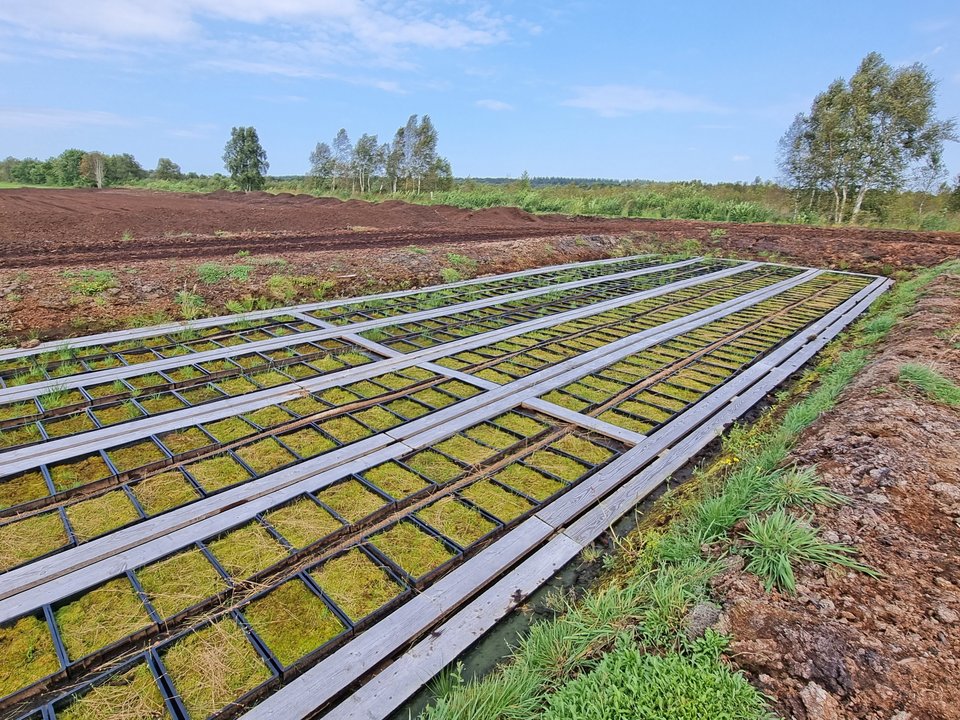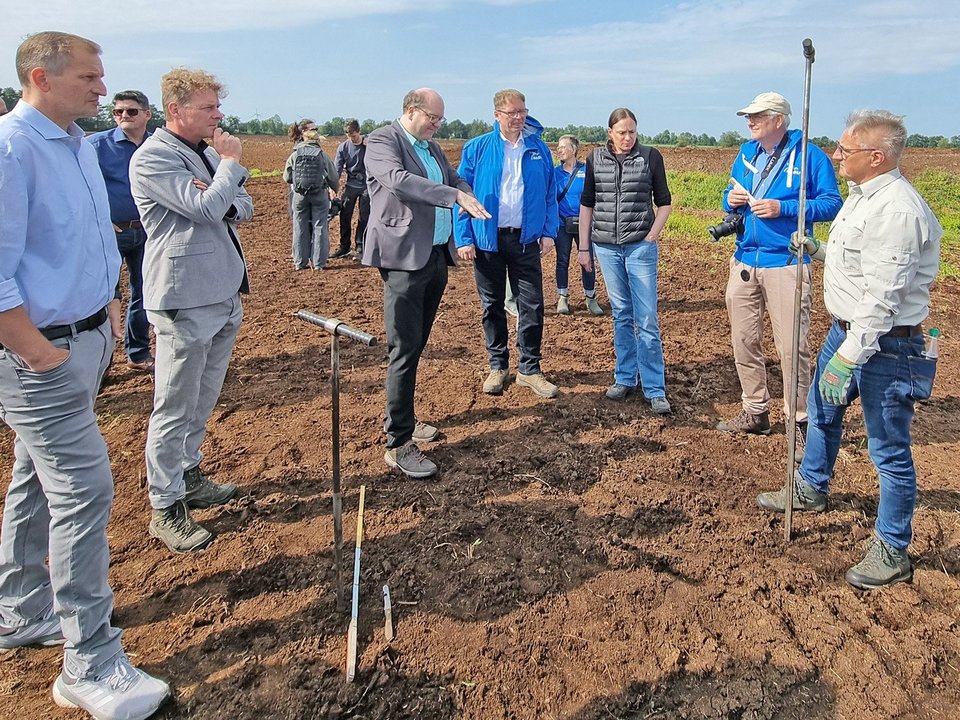NABU and REWE are taking stock of the initial success: by the end of the year, twelve million
Euros will be invested in the renaturalisation projects by the end of the year.
In order to achieve Germany's climate targets, degraded peatlands used for agriculture need to be rewetted. However, the restoration of peatlands in Germany is currently making slow progress. This is why NABU, together with its cooperation partner REWE, established the NABU Climate Fund in 2022. With investments of at least 25 million euros, nature-based climate protection projects are being promoted.
NABU and REWE are now taking stock of their initial success. Since the start of the project, almost 3,200 hectares of moorland have been secured for rewetting. A further 1,100 hectares will be added by the end of the year. By then, around twelve million euros will have been channelled into the renaturation projects. In total, the NABU climate fund comprises seven projects in five European countries.

One of these projects is the rewetting of the "Ahlen-Falkenberger Moor" in the district of Cuxhaven with an area of around 200 hectares of degraded, agriculturally utilised raised bog. With an investment of around six million euros, the moor is to be restored to its natural state in the coming years. This will save almost 200,000 tonnes of CO2 in greenhouse gas emissions over the next 25 years.

In the Ahlen-Falkenberger Moor, the topsoil used for agricultural purposes is being removed, among other things. Drainage channels are closed and ditches filled in to stop water run-off. This is the only way to restore the raised bog vegetation typical of the landscape. In addition, the area will be used to grow its own peat moss with a water reservoir.

The project is being supervised in cooperation with the local NABU group Land Hadeln and the Moor Information Centre (MoorIZ). The documentation of water levels and samples, the recording of vegetation and the mapping of breeding birds are being carried out in collaboration with the Institute for Landscape Ecology at the University of Münster.
Further information on the NABU Climate Fund can be found at Genuine climate protection with the NABU Climate Fund - NABU.

